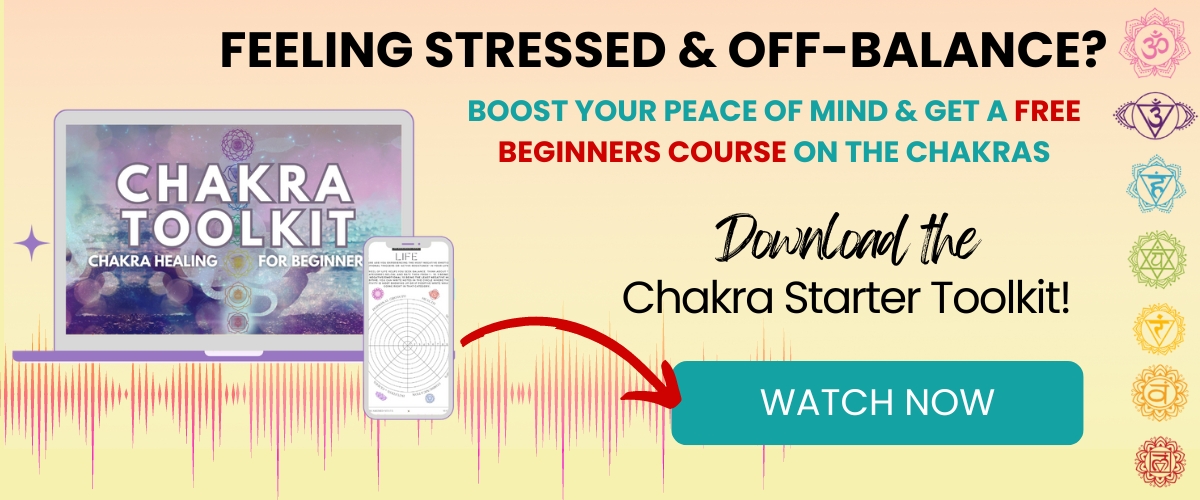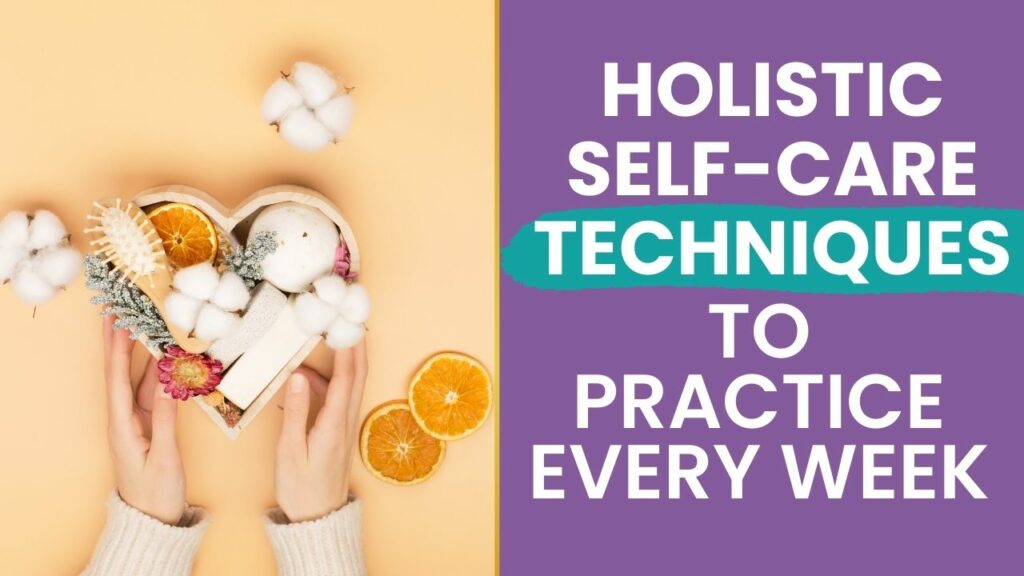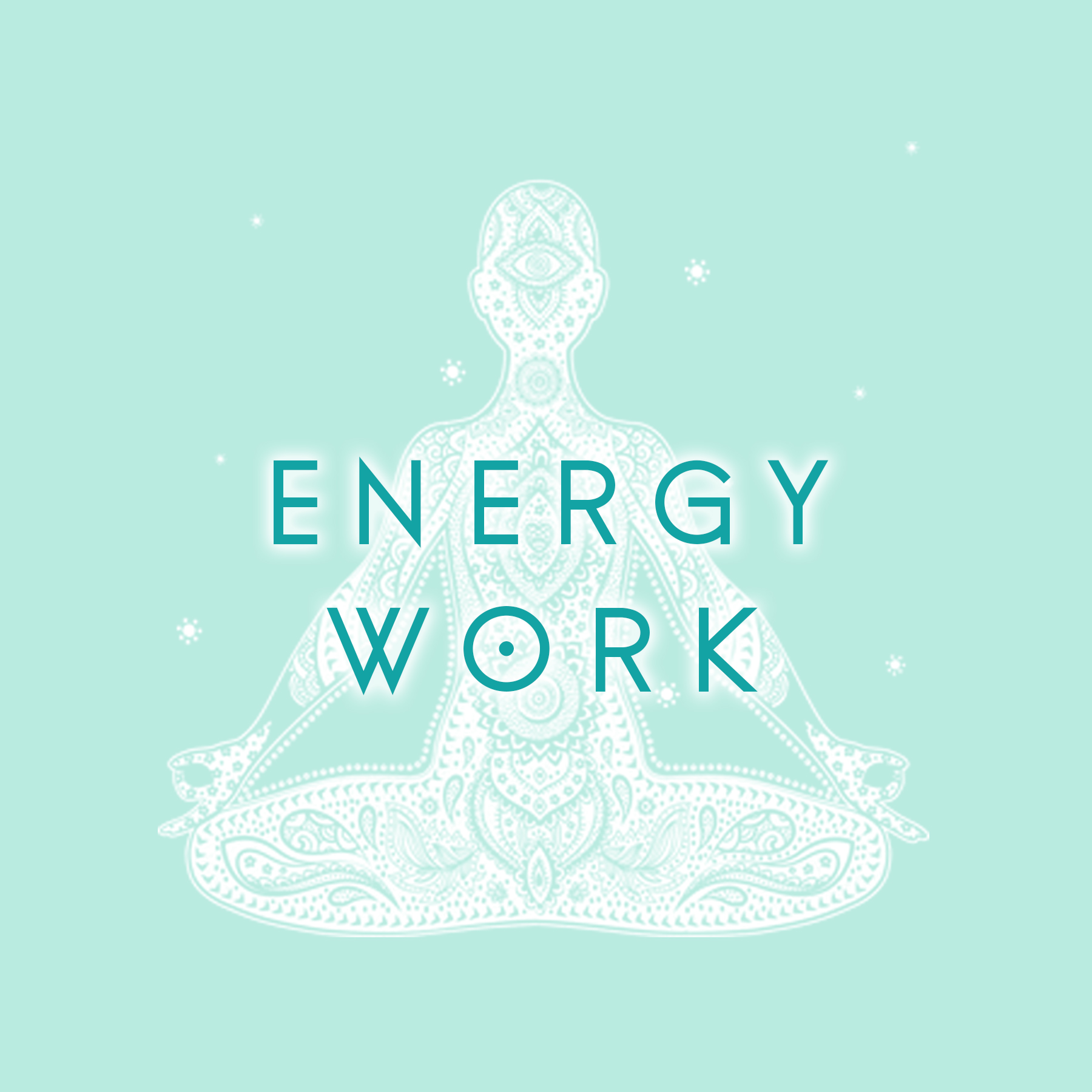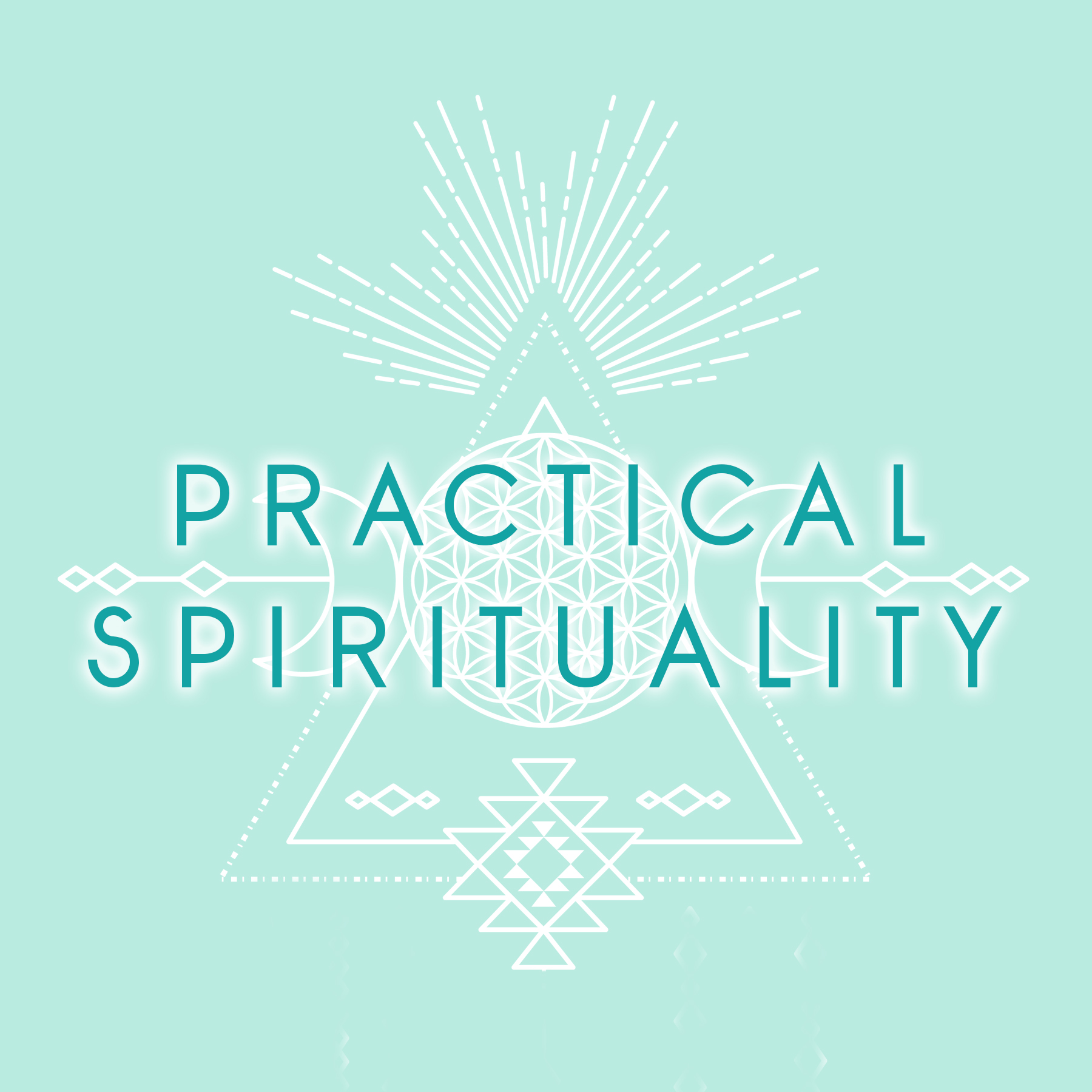Everybody talks about self-care these days, but its popularity leaves the term woefully misunderstood. These practices are essential to making life meaningful for everyone with any budget. Functioning at your best lets you give your all to your other endeavors, whether raising your family or contributing to your career. Think about the last time you felt under the weather, either emotionally or physically — it impacted your performance, didn’t it?
Unfortunately, you aren’t born with a user manual for the human body and mind. Yet the collective wisdom of the ages reveals what you need to feel self-actualized and whole. Practicing the following holistic self-care techniques each week results in a stronger self who can tackle life’s challenges while encouraging others.
1. Nurturing Your Passion
Western society puts so much emphasis on making money that it leaves none left over for what makes life beautiful. Your career would ideally fulfill that purpose, but the reality of rent often means taking any job that covers the bills, even if it leaves you feeling hollow.
Doing what it takes to survive can feed your belly but starve your soul. Inside, you cry out to design baby clothes or create art as you slog through another day of stocking shelves. Over time, the resentment you feel over watching the days and years slip away unfulfilled can leave you depressed and anxious — will life ever be anything more than a slog?
The solution is to pencil in time to work on your passion each week, even if only for an hour or two. You don’t have to direct your efforts toward making money or replacing your day job, at least not at first. Simply indulge in the joy of building a YouTube channel dedicated to your special interests or knitting because you love the click of the needles.
Tying your passion to an income can drain your enjoyment, so design jewelry or teach online dance for the sheer joy of doing it. If it grows into a lucrative side hustle or even replaces your primary income someday, all the better, but the prize is in the joy of doing what you love.
2. Improving Your Eating Practices
The old cliche “you are what you eat” has a lot of merit from a scientific standpoint. As researchers discover more about food, nutrition and its importance in human health, it’s become increasingly clear that diet plays a significant role in how you feel emotionally and physically. Improving dinnertime is among the most powerful holistic self-care techniques.
For example, the omega-3 fatty acids in various seafood are among the healthiest for your brain and cognitive ability. One recent study showed supplementation improved feelings of motivation among depressed patients, who sometimes find merely getting out of bed a struggle. Following the American Heart Association recommendation of eating fish twice per week is powerful — and delicious — self-care.
Furthermore, your intestinal microbiome plays more of a role in mood and mindset than scientists understood previously. You make 95% of your serotonin in your gut, and the two-way traffic between your intestines and brain via the vagus nerve may improve with dietary changes. How can you nurture those colonies of beneficial bacteria so they best work their magic? Add more probiotic and prebiotic-rich foods to your diet each week.
What Should You Eat?
Probiotics are foods that contain the living bacteria themselves. Although you are born with a stash, your supply depletes over time from stress, poor diet, and antibiotic and alcohol use. Eating more of the following can help you replenish your microbiome:
- Yogurt
- Kimchee
- Sauerkraut and other fermented veggies
- Kombucha
- Kefir
Prebiotics refer to types of dietary fiber that nurture your good gut bacteria. They include foods such as:
- Deep, leafy greens
- Apples
- Most fruits and vegetables
- Whole grains
- Nuts and seeds
- Beans and legumes
A fun way to improve your diet is to look at each meal as a chance to practice holistic self-care. Packing your lunch with health in mind — such as a spinach salad with flax, couscous, almonds and blueberries with a light yogurt dressing — is a lovely way to say “I love you” to yourself midway through the workday.
3. Mindfully Moving Your Body
Like it or not, you have to exercise to feel your best mentally and physically. The WHO recommends 150–300 minutes of moderate-intensity movement weekly, but most people fall woefully short. Who has that much free time to hit the gym, especially when you factor in the commute?
Instead of throwing up your hands in despair, get creative. How can you fit more movement into your already packed schedule instead of making it a separate endeavor? Linking physical fitness with another habit can help it stick. Could you:
- Resolve to take the stairs each time you carry paperwork to another floor?
- Walk or ride your bike — to work, the store, to drop off your kids at school?
- Would a variable-height desk or an under-desk treadmill or cycle increase your daily activity?
- Can you hike, play ball, or hit the gym with friends and family, marrying your social needs with the physical? An after-dinner walk might inspire your kids to open up more than the “all eyes on them” vibe they feel at the supper table.
4. Building Financial Security
What does money have to do with holistic self-care techniques and health? In certain economies, everything. A lack of cash will leave you unfed and unhoused — a sure way to crush your body and soul in short order.
Building financial security is harder than ever, between the growing wage-productivity gap, the impossibility of homeownership for many first-time buyers, and the costs of necessities like food and lodging increasing. It can feel like nothing makes a difference when a single car repair can wipe out months, even years of savings in one fell swoop.
However, getting creative and building a sense of security — however that looks for you — can significantly improve your mental health and ease anxiety. Small steps to bolster your finances include:
- Reviewing your expenses by printing out your bank statements, categorizing expenses — your institution may do this for you — and examining where you can save.
- Reviewing your subscriptions by tapping the “Support” icon and “Manage Subscriptions” on your iPhone, or “Settings” and “Manage My Google Account” on Android, canceling those you no longer use. The average person spends $219 a month on subscriptions, many of which they don’t use and forget they have.
- Negotiating with your lenders for lower rates on credit cards and personal loans you’ve paid timely.
- Renting out what you can afford to share, be it a spare bedroom in your home on Airbnb, an old pickup that’s no longer your primary vehicle or even that camper you used once.
- Finding side hustles that don’t feel like chaining yourself to yet another boss or schedule you don’t control. Rideshare businesses like Uber and Lyft and gig companies such as Fiverr let you earn money in your spare time without committing to a second official job.
5. Tending Your Friendship Garden
Humans are social creatures, so a sense of connection with others is crucial to positive mental health. Although your circle may shrink as you grow older, the need remains the same.
Making friends becomes more complicated as old acquaintances start families and life gets hectic. However, it only takes a few minutes to text and propose getting together. What should you do? Here are some fun adult friend activities you’ll love:
- Make some homemade candles and repurpose those leftover jars.
- Pretend to be tourists and hit that museum you’ve always passed but never stopped to visit.
- Walk your dogs together. You can also meet friends this way, as you probably head out at similar times — start a neighborhood pup-walking club.
- Go thrifting. Your consumption need not contribute to climate change. Bike to your local thrift shop together and pick up some secondhand duds for dimes. Bonus points if you pair this activity with a mutual closet cleanout that lets you both refresh your wardrobe.
6. Handling Hygiene With Love
Do you tumble into bed in the evening, only to groan, “Oh, I forgot to brush my teeth again?” Instead of treating hygiene like a chore, welcome it as an opportunity to practice holistic self-care.
Focus on the many health benefits of oral hygiene as you brush, floss and rinse, reminding yourself that this simple act of self-love matters. Recite positive affirmations as you apply your face cream and comb your hair, treating yourself as if you were a model preparing for the catwalk.
7. Giving Back to Your Community
Volunteering reminds you how fortunate you truly are. Giving back to your community is a holistic self-care technique because it benefits you, too, with oodles of mental and even physical health perks.
Performing acts of kindness raises the levels of several essential neurotransmitters — including dopamine and oxytocin, which improve your mood. Every substance in your body affects others, including hormones associated with diabetes and PCOS. Signing up for a shift at the local soup kitchen won’t replace insulin, but it can make you feel better about yourself — which helps the rest of your body function better, too.
8. Simply Existing in Nature
Look at horses grazing in a field or a pride of lions sunning themselves on the savannah. Do they show any evidence of anxiety or depression? Although you can’t ask them about their mindset, wild creatures possess a serenity many humans find enviable — and part of the reason could be these critters allow themselves to simply be.
There’s nothing wrong with sitting back and marveling at the miracle of creation. In fact, doing so may be one of the best ways to improve your mental health. Countless articles explain the virtues of meditation for psychic and physical well-being, and the biggest requirement for engaging in this practice is time to merely sit.
At first, it can feel downright uncomfortable to sit quietly with your thoughts. However, it can transform your life over time. When you reflect quietly, you eliminate the defensiveness you might instinctively react with if someone gives you advice in lecture form. You allow your innate wisdom to bubble up from within, prompting the deep changes that alter your overall mindset — and your life trajectory with it.
Accustom yourself to sitting quietly by using these hacks:
- Set a timer, beginning with only a minute or two, and building as you go.
- Set the mood by finding a quiet location, either creating an appealing meditation corner in your apartment or locating a private spot outdoors.
- Focus your attention by contemplating simple objects like a flickering candle, ants scampering in the grass or reciting a simple mantra.
- Slow your breathing by consciously expanding your belly and chest with each inhale, and extending each exhale.
A fabulous holistic self-care technique is to use your quiet, contemplative time to practice gratitude. Draw to mind something that makes you thankful, allowing the good feeling to build in your heart chakra and spread over the rest of your body.
Try Practicing These Holistic Self-Care Techniques Weekly
Your ultimate responsibility is to take care of yourself. When you do so, you’re able to bring your best self to the table for others. Practicing holistic self-care should be a weekly — if not daily — event.
However, you don’t need to invest in a spa membership. You can practice these holistic self-care techniques at home or anywhere to improve how you feel physically and emotionally.
Enjoy this Article? Share it on your Favorite Socials or Pin it for a Spiritual Bestie to Find, Thanks!
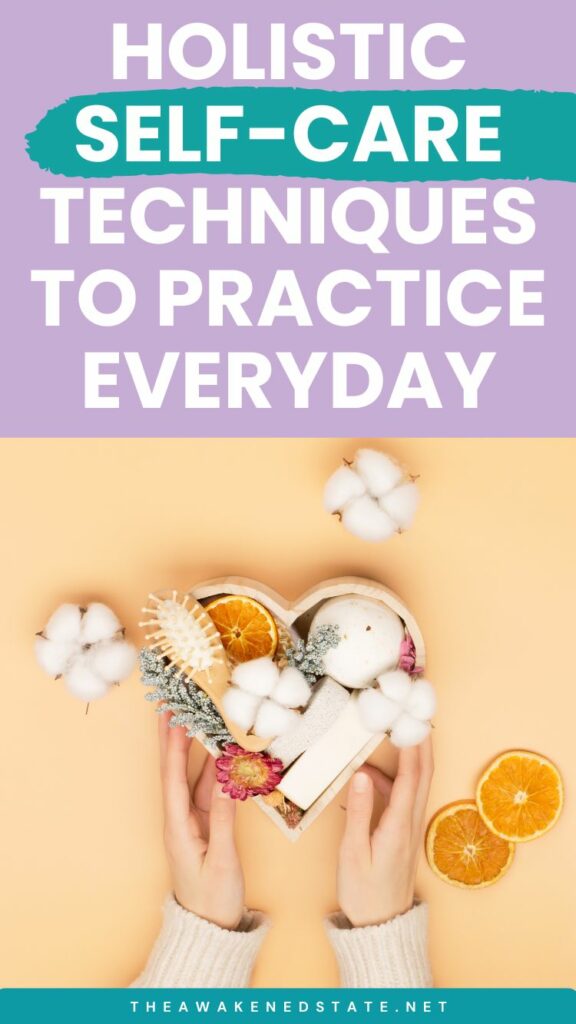

Guest contribution by Author:
Cora Gold | Editor-in-Chief at Revivalist Magazine
Cora Gold is a wellness writer who aims to live a happy, healthy and mindful life. She is the Editor-in-Chief of women’s lifestyle magazine, Revivalist. Connect with Cora on Twitter, LinkedIn and Pinterest.
- 6 Ways to Connect With Nature for Balance and Serenity - July 15, 2024
- Summer Spirituality: Best Practices to Adopt This Season - June 7, 2024
- The Best Wellness Tips for Emotional Healing - May 14, 2024

